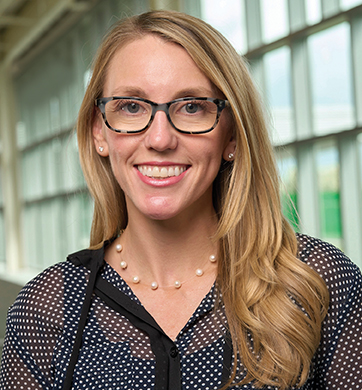Going, Going...Gone? | Editorial
Capturing and preserving information has long been part of the library mission. As the world grapples with the wide range of threats climate change presents to the environment, ecosystems, and society, we can make a difference by keeping people informed.
Protecting information to save the planet
 Last year I read about a meteorologist named Chris Gloninger who took a job at a television station in Des Moines, IA, with a goal of increasing the station’s climate coverage. Agriculture is the cornerstone of Iowa’s economy, and he saw an opportunity to provide information about climate issues that could be valuable to farmers. Yet when Gloninger spoke openly about climate change in his weathercasts, he began to receive death threats. The act of sharing information, even when fact-based, proved so polarizing that he ultimately left his job.
Last year I read about a meteorologist named Chris Gloninger who took a job at a television station in Des Moines, IA, with a goal of increasing the station’s climate coverage. Agriculture is the cornerstone of Iowa’s economy, and he saw an opportunity to provide information about climate issues that could be valuable to farmers. Yet when Gloninger spoke openly about climate change in his weathercasts, he began to receive death threats. The act of sharing information, even when fact-based, proved so polarizing that he ultimately left his job.
Climate change involves complex information that, when coupled with economic interests, political ideology, social values, and cultural identity, can challenge personal beliefs. But that doesn’t make the information any less relevant or important. In fact, in the case of climate change, one could argue that information—and libraries as information partners—is key to addressing it.
This is why it is so concerning that information about climate change recently disappeared from federal government websites. The situation is so dire that a group of farmers and environmental watchdogs recently came together to sue the U.S. Department of Agriculture (USDA) over its removal of references to climate change.
According to the lawsuit filed by the Knight First Amendment Institute at Columbia University and Earthjustice—representing the Northeast Organic Farming Association of New York (NOFA-NY), Natural Resources Defense Council, and the Environmental Working Group—the USDA directed its staff on January 30 to “identify and archive or unpublish any landing pages focused on climate change.” Within hours, resources about climate-smart farming, forest conservation, loans for underserved farmers, and climate adaptation were scrubbed from the web. The purge also removed interactive tools, such as the U.S. Forest Service’s Climate Risk Viewer and Vulnerability Assessments Storymap, which helped farmers, researchers, and the public understand extreme weather and changing climate.
NOFA-NY Executive Director Marcie Craig says that her organization relied on the USDA information to educate farmers about organic farming, conservation practices, and—perhaps most critically—funding. “The farming community is just getting hammered right now…when farmers call us, they want to know what grants might be available, or how to fund a capital project on a farm.” Craig and her team would direct them to the USDA website to learn about the practices required for federal funding eligibility. Now, she fears many small farms won’t make it.
Without the technical assistance and funding information online, farmers have fewer options for addressing risks related to extreme weather. Heat waves, droughts, wildfires, floods—all experienced across the country within the past 12 months—affect farming practices and agricultural business strategy.
So, why would the government remove information that could help farmers better navigate risks to their livelihood? Peter Lehner, a lawyer for Earthjustice, suggests it’s part of broader efforts to minimize climate change. “What they’re doing makes no scientific or economic or moral sense, and yet they’re doing it. They want to deny that climate change is an issue…so they just erase it.”
Concern over information purges this term have prompted citizen efforts to mitigate potential losses. A new initiative from Harvard Law School’s Library Innovation Lab involves a data vault where, as LJ Executive Editor Lisa Peet recently reported, they collect datasets tracked by data.gov, federal GitHub depositories, and PubMed. The End of Term Web Archive has been recording changes to government websites before and after each presidential administration since 2008 so information isn’t lost.
Gary Price, LJ’s InfoDocket partner, recommends web archiving as part of a daily workflow. The Internet Archive’s Wayback Machine offers browser extensions that anyone can use to archive pages while browsing.
Capturing and preserving information has long been part of the library mission. As the world grapples with the wide range of threats climate change presents to the environment, ecosystems, and society, we can make a difference by keeping people informed.


Add Comment :-
RELATED
ALREADY A SUBSCRIBER? LOG IN
We are currently offering this content for free. Sign up now to activate your personal profile, where you can save articles for future viewing








